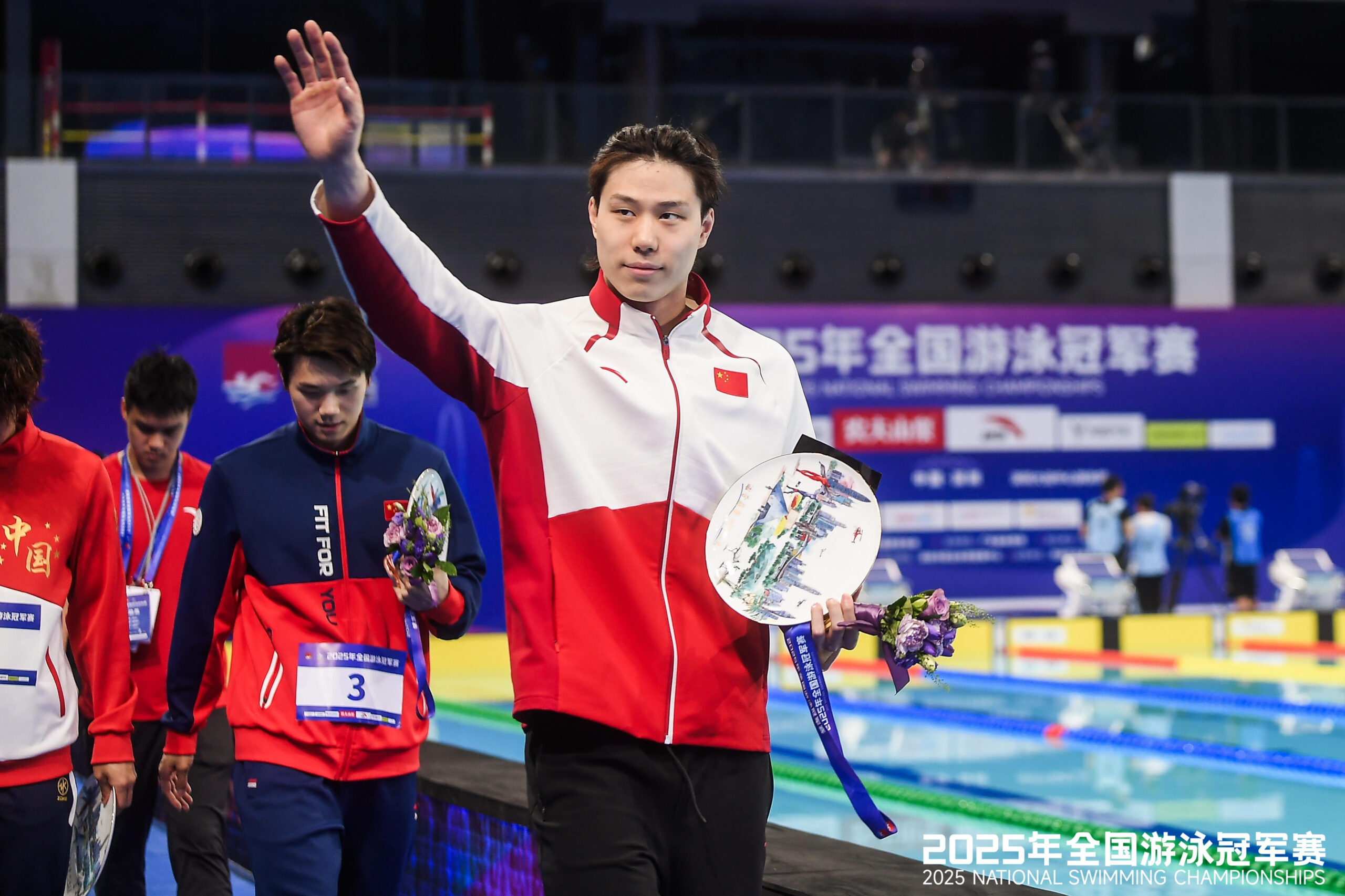
From Beast Mode to Balance, He is Braving a New Climb
At a glance, Qin Haiyang still looks every bit the aquatic colossus we’ve come to revere: shoulders like granite, chiseled physique, focus like steel. But lately, something may have shifted. If you look closer at him now- the furrowed brow is softer, the post-race smiles linger longer, the warmth in his interactions with teammates and fans. It’s subtle but unmistakeable. For the first time in a long while, China’s breaststroker titan isn’t just chasing records, he’s learning how to live.
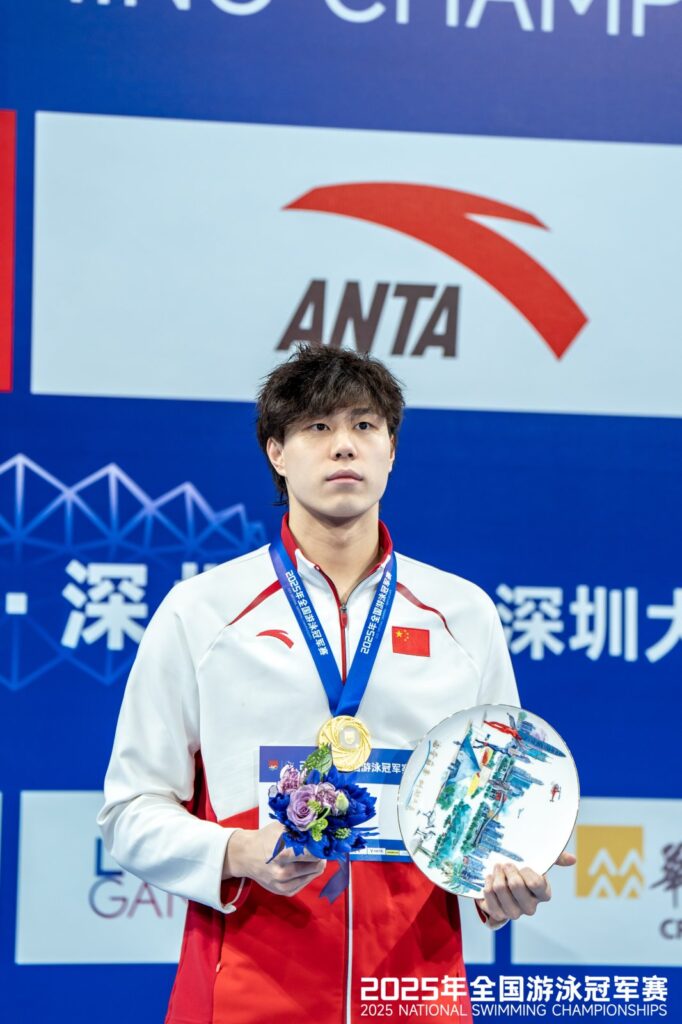
Storm Mode: The Qin We Used to Know
Qin that we have known before lived like a storm. He moved through the sport like a force of nature. There was no halfway. He trained like every second counted. In every sense, he was the prototype of a modern swimming monster: forged in discipline, carved by intensity, fuelled by the kind of ambition that doesn’t sleep. Teammates like Zhang Yufei even labelled him the “卷王”—a crown not of royalty, but of relentless overachievement.
He didn’t just train hard. He trained like he was at war—with himself.
But after Paris 2024, after the fall that shook him to his core, Qin Haiyang isn’t racing toward the top anymore. He’s learning how to climb.
And in that quiet, deliberate ascent, he may have found the most powerful version of himself yet.
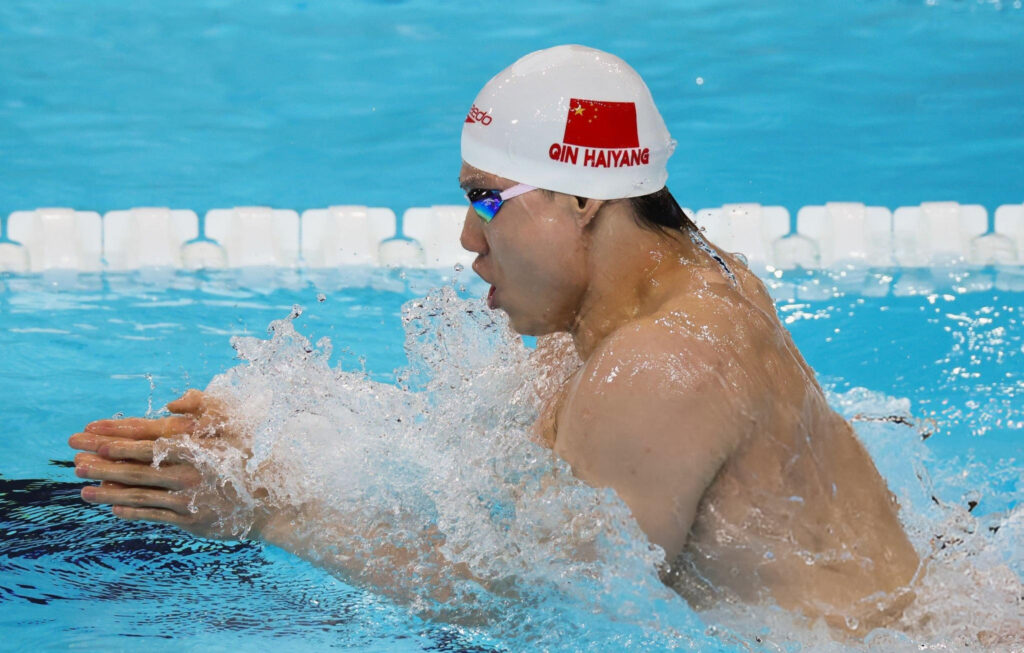
The Myth of “More”: When the Fortress Cracked
The 2024 Paris Olympics was supposed to be the coronation of Qin Haiyang’s dominance. He had steamrolled the competition in 2023, redefining what was possible in breaststroke. Yet, on the sport’s grandest stage, he crumbled. He left the pool medal-less in his individual events, physically broken and emotionally drained.
“I felt like a robot,” he later reflected.
In the pursuit of perfection, he missed the warning signs. The overtraining, the injuries stacking up like red flags he refused to see, the aches in his knees, tension on his back, stubborn fatigue, all screaming in silence. Still, he pushed. Because that’s what he knew- the belief that pushing harder was always the answer and it created a false fortress of security.
Except, it was built on sand.
“I thought more intensity meant more control,” he said. “But I lost everything that made me, me.”
When the medals disappeared, so did the illusion.
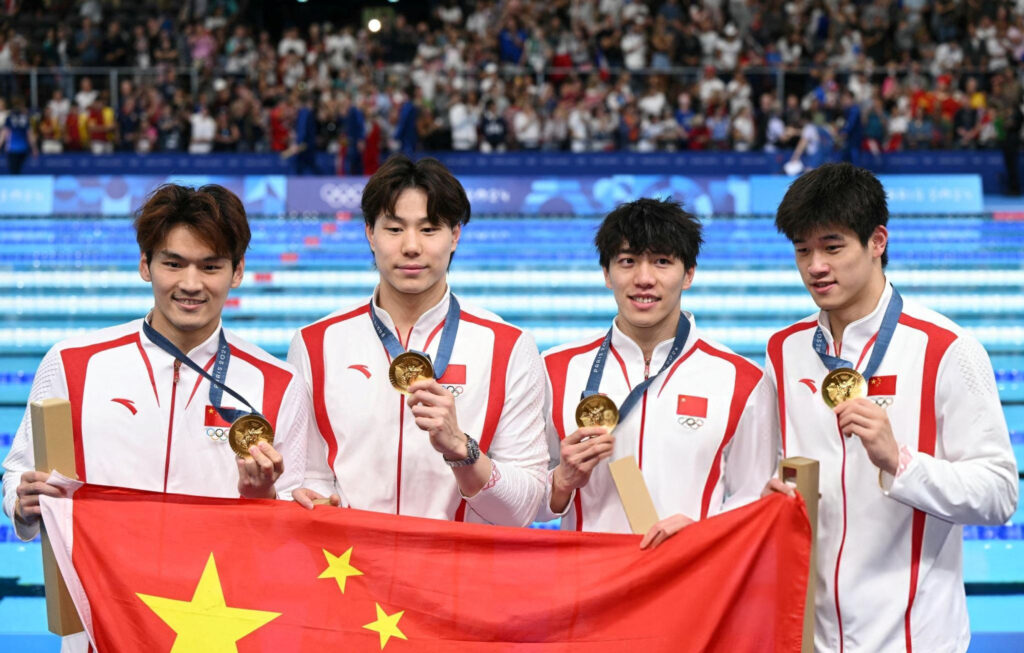
The Power of a Pause
“Even if the mountain is ten thousand feet high,” he says now, “you can only climb one step at a time.”
He is no longer the same Qin Haiyang. He is not the sprinting beast of years past. He is a man who has stared down burnout and chosen to walk-mindfully and purposefully uphill.
Post Paris Olympics, he didn’t rush into redemption mode. He didn’t bury the loss with more hours in the water. Instead, he took a step back and perhaps this move is the bravest one of his career. He gave his body time to heal. He gave his soul “permission to speak”.
Now training under Australian coach, Michael Bohl, Qin found a new rhythm. Bohl preaches balance and recovery, often encouraging swimmers to hit pause, reset, then come back stronger. Not punishment, but patience. When his body says rest, he listens. When things go sideways, he doesn’t overthink like he used to—he stays calm and composed. For Qin, this has been a revelation.
The same athlete who once feared stillness has now embraces it.
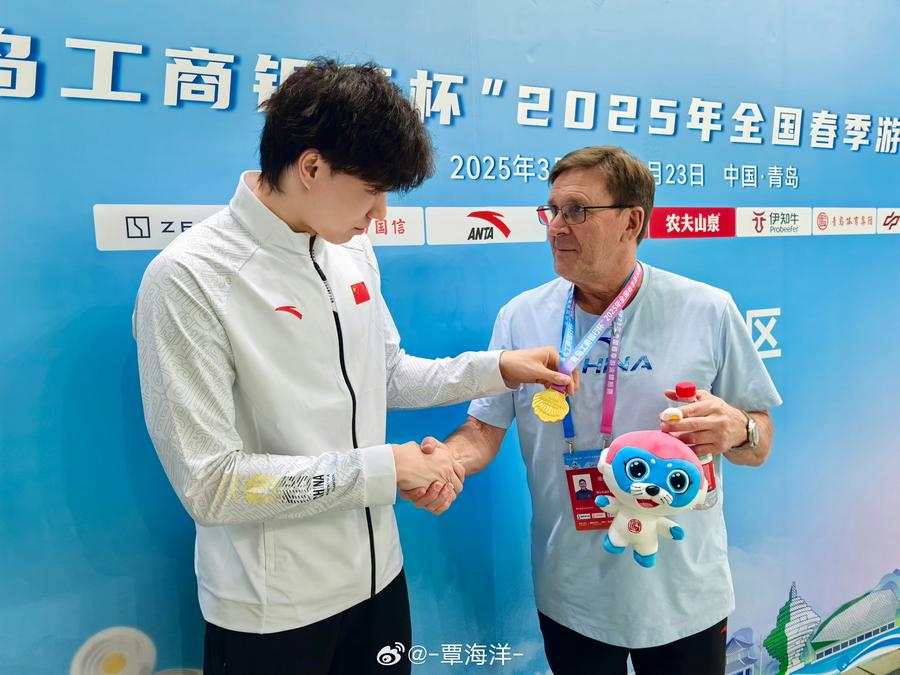
From “War Room” to “Calm Waters”: Learning to Enjoy the Water Again
Qin’s mindset shift was visible at the recent Chinese Nationals. Though his form was still recovering—he admitted his performance was only at 50% of his peak, he looked free and his smile returned. He laughed more. He cheered from the stands for the first time. He celebrated his 26th birthday with fans and when he was asked about the meet, he didn’t just talk about winning gold medals anymore. He described it as “the happiest Championship of my career.”
That joy wasn’t in the results. Yes, he swept all the breaststroke titles. But that’s not what defined him this time. What stood out was how he did it: calmly, confidently and unburdened. No longer chained to expectations, he raced with presence, not pressure. This positive change in himself signalled a new era. One where medals are the byproduct of balance, not burnout.
Before Paris, Qin lived on autopilot- more sets, more weights, less sleep. No space for questions and only aim for the best output.
Now?
“If I’m not feeling it, I’ll rest,” he says without shame. “It’s not laziness. It’s being smart. And when I do go again, I feel better.”
He’s swapped obsession for intention. He’s chosen to protect the engine rather than burn it out. And here’s the twist: it hasn’t made him slower. He just learned how to pace.
In this sport where milliseconds matter, that mindset is a weapon.
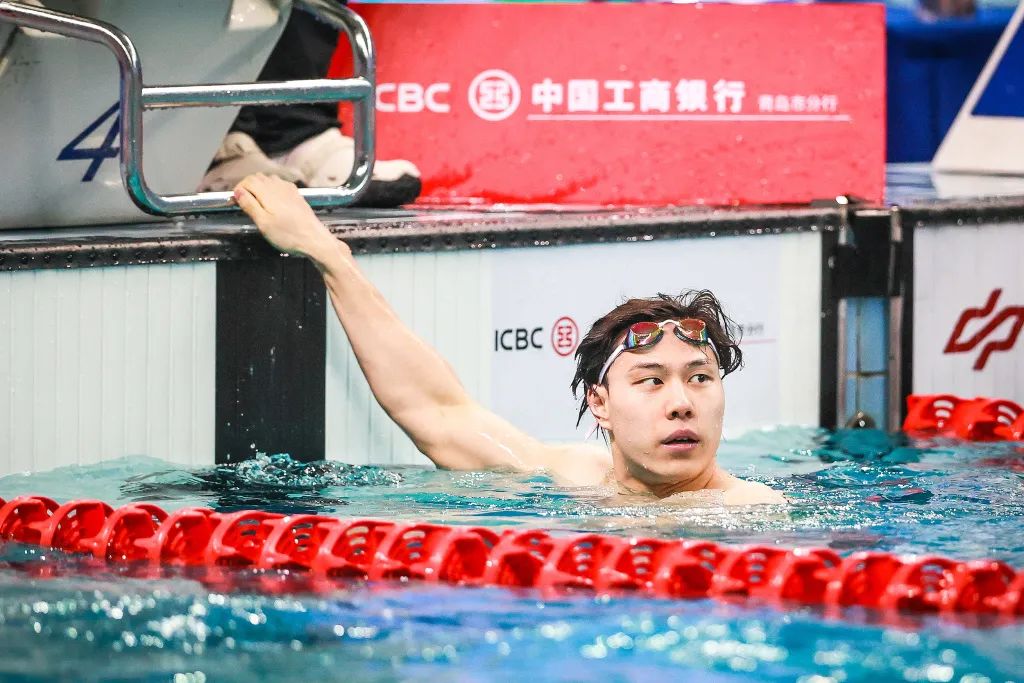
What’s Next: Singapore and Redemption 2.0
With the World Championships in Singapore approaching, Qin isn’t yet back to his dominant best, but he no longer haunted by that and fears the unknown. He likens his current form to the lead-up to Paris, but now with a better mindset: “Last time, if I wasn’t perfect, I thought I couldn’t win,” he says. “Now? Who knows-maybe I’ll win anyway.”
It’s not false confidence. It’s a man who is no longer clinging to control, but traded it for flow. If the Olympic flame lit his fire, it’s this new inner calm that may keep it burning longer.

The King Who Finally Learned to Breathe
In a sport where milliseconds decide everything, choosing to pause is almost unthinkable. Yet, in a culture of relentless hustle, Qin Haiyang is rewriting his playbook. Not with less ambition, but with more self-respect.
He’s no less dangerous in the pool—he just changed the way he sharpens his tools.
Sometimes, the bravest thing a champion can do isn’t to swim harder; but to stop, breathe, and climb again—one mindful step at a time.
This Qin Haiyang 2.0 doesn’t strike fear through volume. He does it through wisdom.
The king has dropped the armour.
The beast has learned to breathe.
And as he climbs again—step by step—the summit no longer scares him.
It welcomes him.
